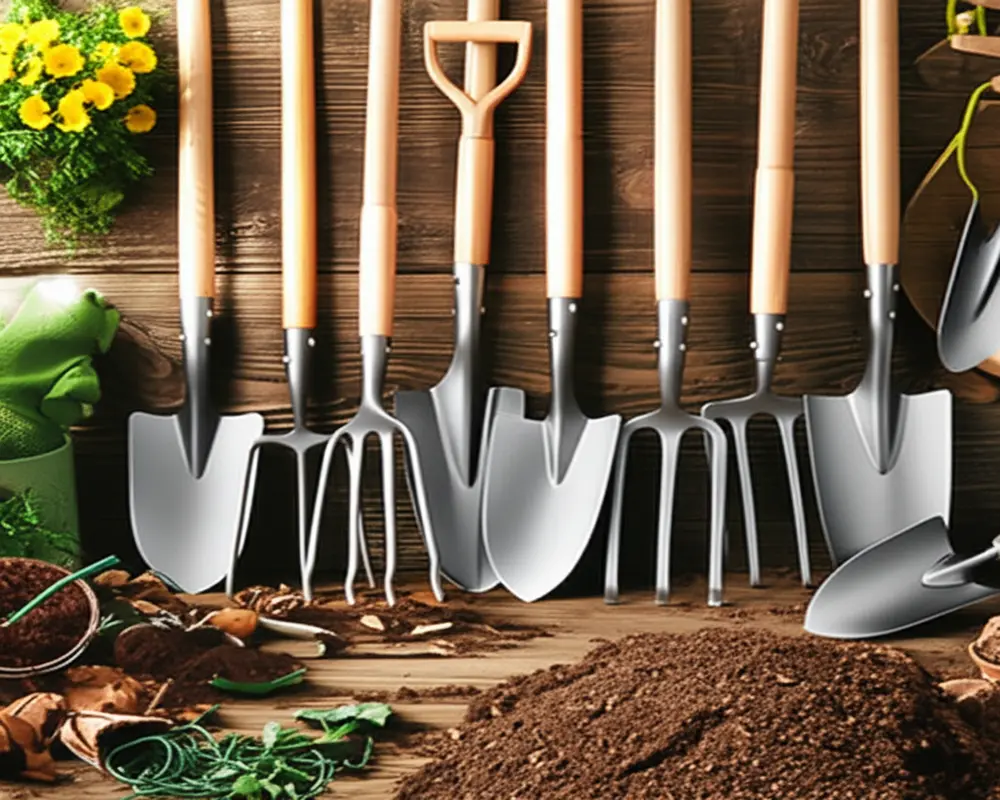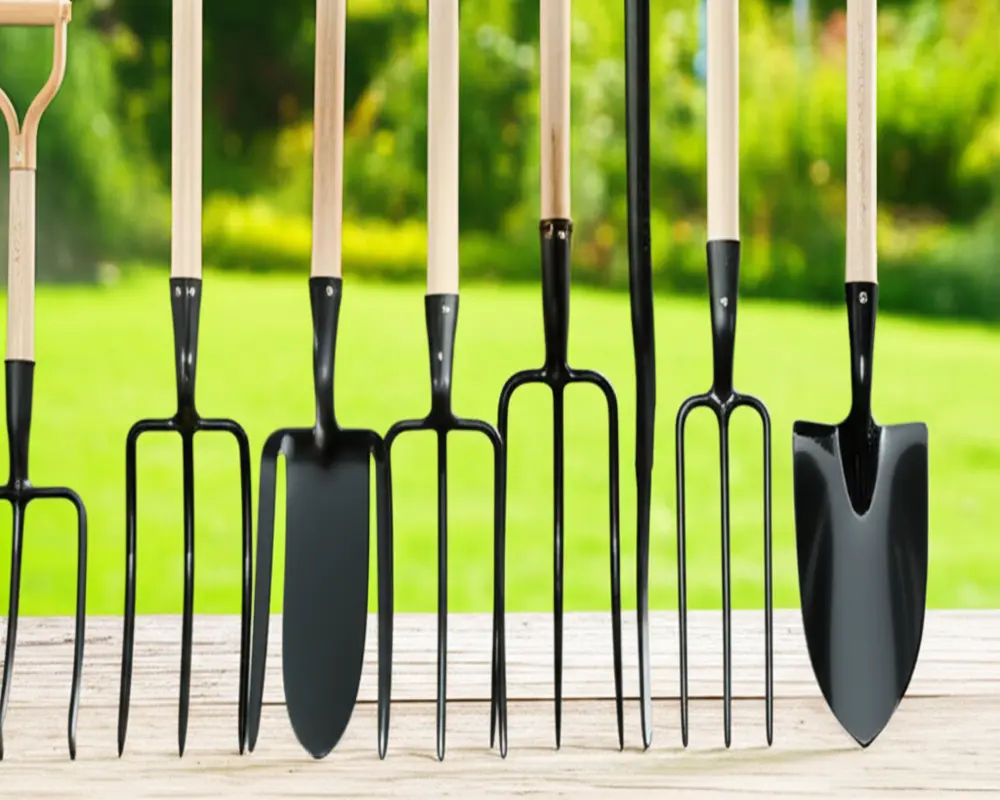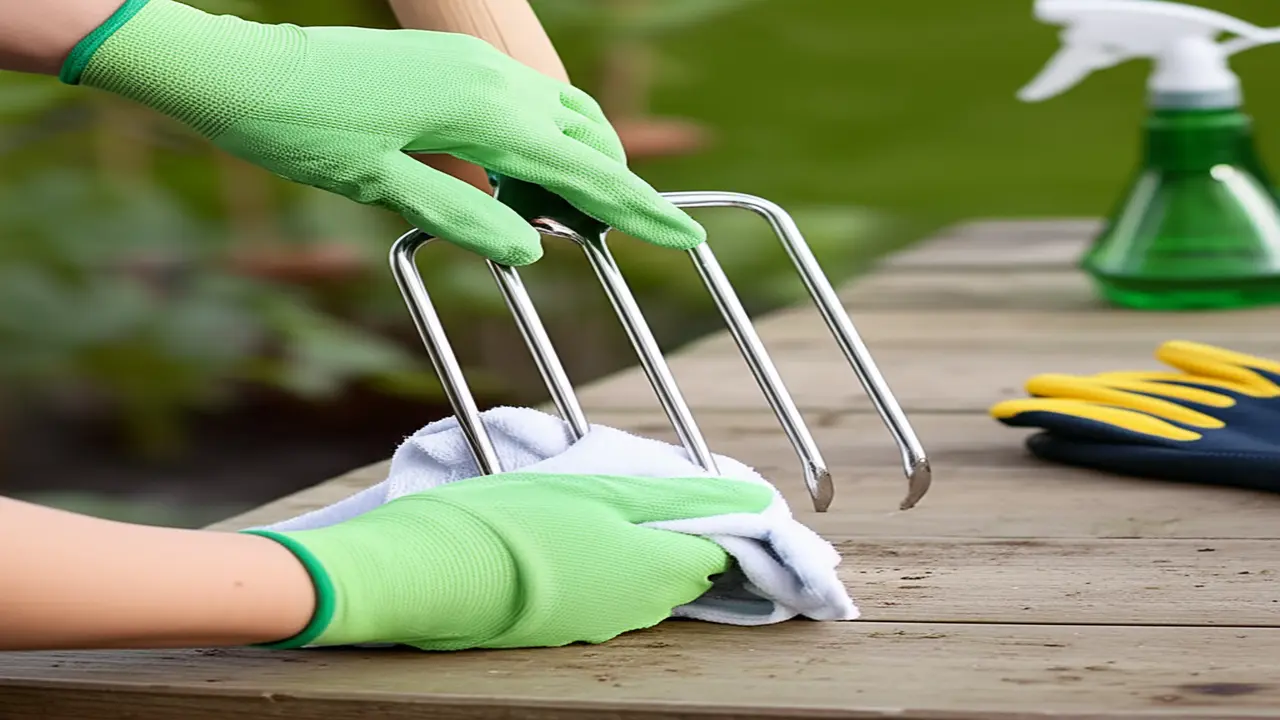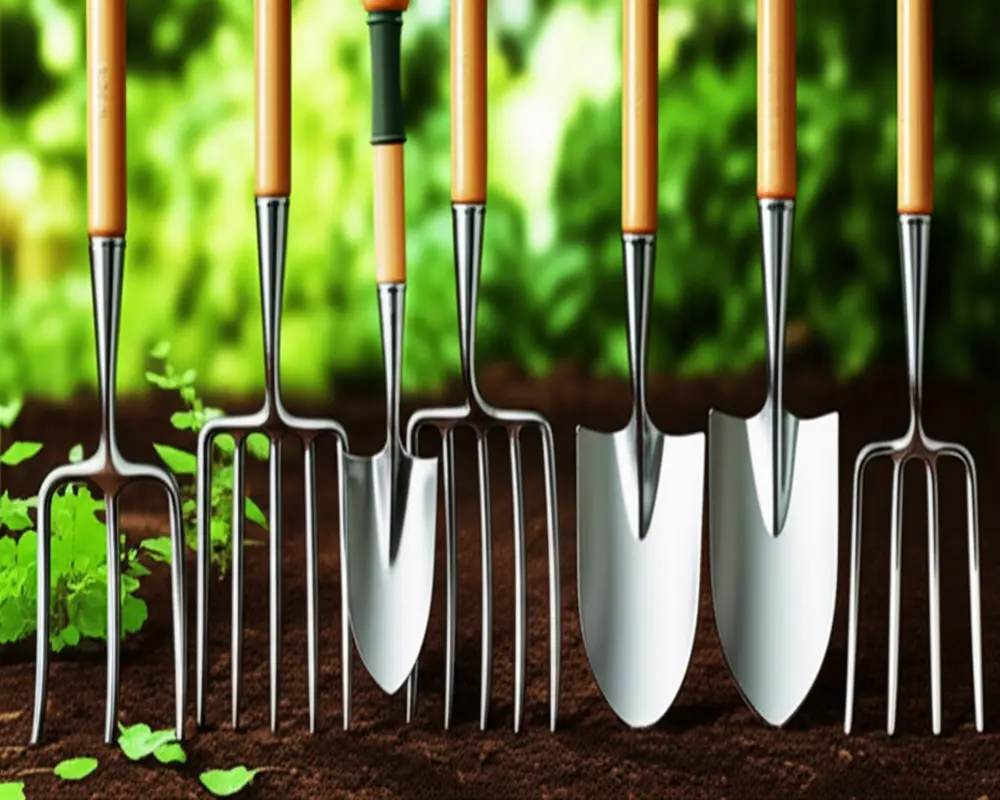The Best Garden Fork Brands: Choosing Quality & Durability for Your Garden
Garden forks are indispensable tools in any gardener’s arsenal, designed primarily to loosen, lift, and turn over soil while maintaining the earth’s structure. Their robust tines make them superior to shovels when it comes to detailed tasks like aerating soil, removing stones, or harvesting root vegetables. Selecting a reputable garden fork brand is crucial because it affects the tool’s quality, durability, and comfort during use.
By choosing well-established brands, gardeners benefit from superior materials, thoughtful ergonomics, lasting warranties, and overall better value. This guide aims to help you unravel the characteristics that differentiate top garden fork brands and enables informed purchasing decisions aligned with your gardening needs.
Understanding Garden Forks: Key Factors When Evaluating Brands
Garden forks come in various forms, each optimized for particular gardening tasks. These include digging forks suited to breaking hard ground, border forks designed for fine soil manipulation near beds, pitch forks for moving hay or straw, and potato or compost forks perfected for lifting fragile produce or organic matter.

When assessing garden fork brands, several critical components deserve close attention. The tines (prongs) vary in material—common choices include forged steel for strength, stainless steel for corrosion resistance, and carbon steel for hardness. Tine shape and number also influence performance, with roles shifting between flat and rounded profiles depending on soil type and task.
The handle or shaft materials range from traditional ash wood, known for its resilience and shock absorption, to fiberglass and steel that bring enhanced durability and lighter weight. Handle length and grip design impact ergonomics significantly; brands differ in offering D-handles for leverage or T-handles for precision. The connection between handle and tines can be welded, forged, or riveted, all affecting reliability and longevity.
Comfort and balance remain paramount as ergonomic garden forks reduce fatigue and strain during prolonged use. The weight distribution, handle grip material, and overall design nuances vary across manufacturers, signifying brand-specific innovation. Consideration of warranty and customer support further underscores brand confidence, reflecting the manufacturer’s commitment to quality.
Price ranges span from budget-friendly options catering to casual gardeners to premium artisan models built for professionals or enthusiasts seeking heirloom craftsmanship.
Top Garden Fork Brands: In-Depth Profiles & Recommendations

The landscape of best garden forks includes a blend of heritage, innovation, and specialization. Below are profiles of prominent brands known for their specific contributions to garden fork quality and usability.
Spear & Jackson
Founded in the 18th century, Spear & Jackson holds a storied reputation emphasizing traditional metalworking and high-quality forged steel tools. Their forks combine enduring strength with classic design, appealing to gardeners valuing heritage craftsmanship. Their signature range includes robust digging and border forks with solid sockets and durable ash handles.
Pros: Time-tested durability, excellent for heavy soil; Cons: Heavier weight compared to modern materials.
Fiskars
Fiskars introduces modernity with its lightweight yet sturdy garden forks. Their innovation centers around ergonomics, employing composite materials to reduce weight and designing handles for natural hand position, minimizing strain. Fiskars’ product lines suit users wanting comfortable tools for extended use.
Pros: Exceptional ergonomics, rust-resistant materials; Cons: Premium pricing for high-end models.
DeWit / Sneeboer
DeWit and Sneeboer produce hand-forged, artisan-quality garden forks prized for heirloom value and aesthetic appeal. Crafted traditionally with meticulous attention, these forks boast carbon steel tines and ash handles, designed for gardeners seeking both function and collectible beauty.
Pros: Superior craftsmanship, long-lasting sharpness; Cons: Higher price point, requiring hand maintenance.
Bully Tools
Bully Tools focuses on robust American-made equipment emphasizing toughness and reliability. Their forks excel in demanding conditions, with thick forged steel tines and reinforced handles designed for heavy-duty gardening and landscaping tasks.
Pros: Great for professional/landscaping use; Cons: Bulkier design may not fit small garden needs.
Truper / Gardena
Truper (Mexican origin) and Gardena (European origin) offer accessible, reliable tools with broad availability. They deliver solid quality for the price, widely used among home gardeners. Their garden forks range caters from light to moderate soil work, balancing affordability and performance effectively.
Pros: Good value, wide retail presence; Cons: Lower specialization in premium ergonomic features.
Corona / AMES
Corona and AMES manufacture professional-grade forks with diversity in designs suitable for various soil and gardening needs. Their tools often feature tempered steel tines and durable fiberglass handles, balancing strength and comfort.
Pros: Hybrid durability and ergonomics; Cons: Some models heavier than rivals.
Joseph Bentley
Joseph Bentley crafts traditional aesthetic garden tools with quality materials and finishes. Their forks appeal to gardeners valuing classic appearance coupled with reliable function, often featuring ash handles and forged tines.
Pros: Classic design, durable materials; Cons: Limited modern ergonomic adaptations.
Choosing the Best Brand for Your Needs: Comparative Analysis
The following comparison summarizes key attributes to assist in selecting the optimal garden fork brand:
| Brand | Known For | Material Highlights | Price Range | Warranty | Ideal User |
|---|---|---|---|---|---|
| Spear & Jackson | Traditional forged steel, heritage craftsmanship | Forged steel tines, ash wood handles | $$ | 5 years | Professional & Heritage enthusiasts |
| Fiskars | Ergonomic design, lightweight innovation | Composite handles, rust-resistant steel | $$$ | Limited Lifetime | Comfort-focused gardeners |
| DeWit / Sneeboer | Hand-forged artisan quality | Carbon steel tines, ash handles | $$$ – $$$$ | Lifetime | Artisan & Collectors |
| Bully Tools | Heavy-duty American-made tools | Forged steel, reinforced handles | $$$ | 10 years | Contractors & heavy use |
| Truper / Gardena | Reliable, good value | Steel & fiberglass | $ – $$ | Varies | Casual gardeners & homeowners |
| Corona / AMES | Professional-grade durability | Tempered steel, fiberglass handles | $$ | 5 years | Varied garden sizes & tasks |
| Joseph Bentley | Traditional aesthetic & quality materials | Forged steel, ash handles | $$$ | Limited | Traditionalist gardeners |
Recommended “Best Of” categories can guide your decision:
- Best Overall Brand: Spear & Jackson for balanced durability and traditional craft.
- Best Heavy-Duty Use: Bully Tools for robustness in demanding environments.
- Best Ergonomics & Comfort: Fiskars for modern lightweight innovation.
- Best Value Brand: Truper/Gardena for reliable garden forks at affordable prices.
- Best Traditional Craftsmanship: DeWit/Sneeboer for heirloom-quality tools.
Maintenance & Care: Extending the Life of Your Branded Fork

Prolonging the lifespan of your durable garden forks requires regular maintenance. After each use, clean the tines with water and a brush to remove soil and residue. Dry the fork thoroughly to prevent rust, especially if the tines are carbon steel.
Sharpening the tips periodically enhances penetration, particularly for digging forks. Use a metal file to maintain a fine edge along the tines. Inspect the handle and socket area for cracks or looseness, tightening any rivets or screws as necessary.
Store forks in a dry location, preferably hanging to avoid moisture accumulation and handle damage. Proper care ensures safety, efficiency, and an extended tool life, solidifying the value of your brand investment.
Frequently Asked Questions About Garden Fork Brands
How can I determine the quality of a garden fork brand?
Assess the materials used for tines and handles, construction methods (forging or welding quality), ergonomic features, warranty length, and user reviews highlighting durability and comfort. Trusted brands often offer guarantees and long-standing reputations.
What are the differences between carbon steel and stainless steel tines in garden forks?
Carbon steel tines are typically harder and hold an edge longer, ideal for tough soil but require more maintenance to prevent rust. Stainless steel tines resist corrosion easily, requiring less upkeep, but can be softer and wear down faster.
Is a higher price worth it when buying garden forks?
While premium brands often provide superior materials, longevity, and ergonomic design, choosing a fork should align with your gardening frequency and soil conditions. Spending more upfront often means savings over time due to durability.
Where can I purchase reputable garden fork brands?
Reputable brands are available through specialized garden tool retailers, hardware stores, and trusted online platforms. Checking official brand websites is recommended for authentic products and warranty registration.
What is the expected lifespan of good-quality garden forks?
With proper care, high-quality garden forks can last several years to decades. Hand-forged and well-maintained tools often become heirlooms, while mid-range forks typically provide reliable service beyond 5-10 years.
Conclusion: Making Your Informed Brand Choice
Choosing the right garden fork brand is a pivotal decision influencing your gardening productivity and enjoyment. Matching brand strengths such as durability, ergonomic design, or traditional craftsmanship with your particular gardening needs and budget leads to satisfaction and value.
We encourage exploring detailed product lines on brand websites and reading thorough product reviews to pinpoint the best match. Armed with knowledge from this guide, you can move confidently towards a prudent, lasting garden fork investment that serves your outdoor pursuits well.
For more detailed insights and related garden tool reviews, consider exploring our expert reviews on garden spades or our guide on ergonomic garden tools to complement your toolkit.
Authoritative external references for further reading include The Spruce’s analysis of best garden forks, This Old House’s tool recommendations at thisoldhouse.com, and Gardener’s World comprehensive reviews at gardenersworld.com.

